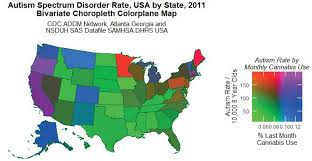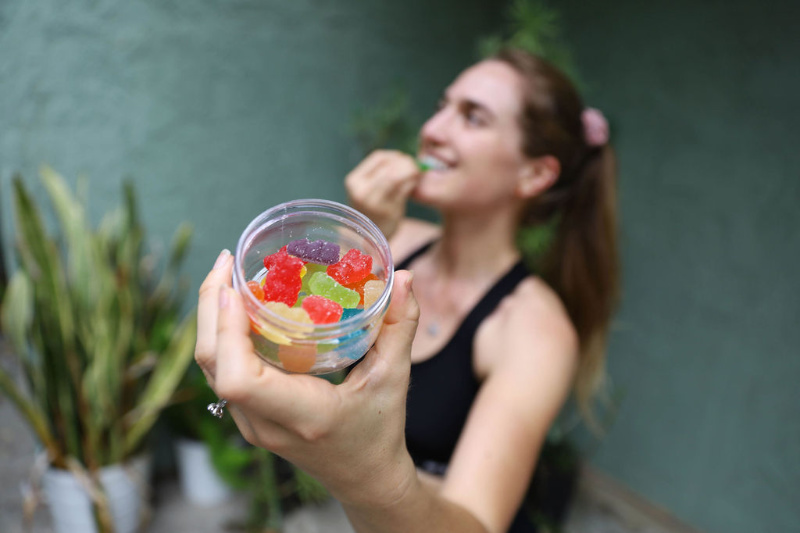
CBD is a popular natural remedy for many illnesses. It has been recognized for its benefits in many different fields. CBD is often infused into different products. This provides users with both relief from symptoms and a higher level of wellbeing. People report an improvement in their outlook and well-being, despite the fact that effects may vary between people. CBD is added to wellness products as an additional benefit. Some studies have shown that CBD may even work in conjunction with other therapies.
Cannabidiol
Cannabidiol is a substance found in the cannabis plant. It is believed to help with epilepsy, pain, inflammation and epilepsy. Although it can be ingested for therapeutic effects, it takes some time for the effect to kick in. It may also be useful for treating skin issues and fighting inflammation. There are many kinds of cannabidiol.

Endocannabinoid systems
The endocannabinoid (or ECS) is a network that includes receptors on immune cells and neurons. It plays a key role in maintaining an internal environment. Human survival is dependent on the maintenance of homeostasis. This balance is essential for human survival. Any disruption can have serious consequences on our health. The ability of the body to maintain equilibrium is a key factor in our health.
Relief of symptoms
CBD has been studied for its potential to reduce pain and ease symptoms. Some published studies have demonstrated that CBD is highly effective in the treatment of PMS. Some claim that CBD can reduce anxiety and the frequency of migraine attacks. Others claim CBD reduces chronic pain and inflammation. These studies have not been conclusive. More research is needed to discover the effects CBD has on pain.
Mood enhancement
CBD may be an effective treatment option for those suffering from depression. Mood disorders are typically a result of low levels of serotonin in the brain. CBD may not increase serotonin, but it could affect brain receptors. One animal study proved that CBD had antidepressant effects and anxiety-reducing properties. Another 2018 review of existing studies concluded that CBD has anti-stress effects, which may help to reduce the symptoms of depression caused by stress.

Skin benefits
Many people are curious if CBD has any skin benefits. It is possible that this plant extract has anti-inflammatory and anti-bacterial properties, but more studies are needed to confirm these claims. It is still unclear what CBD does to skin issues. But, CBD may have the potential to reduce inflammation, acne, and improve skin health. These are just a few of the many benefits CBD could have for your skin.
FAQ
What amount of CBD do I require?
The type of product you are buying will determine how much dosing is required.
CBD oils come in a variety of strengths, ranging from 100mg-1000mg per bottle.
There are many companies that make CBD products in very specific dosages. For example, 25mg, 50mg or 75mg.
For example, the company Charlotte's Web makes CBD products with precise amounts of CBD and other cannabinoids.
Begin with a low dose if you're not sure whether CBD will work.
You can always climb higher.
How can CBD products be successfully promoted by companies in a regulatory-compliant way?
The FDA doesn't regulate hemp as an agricultural commodity. The Controlled Substances Act governs all other cannabis derivatives, such as marijuana. CBD has yet to be subject to specific regulations.
CBD is legal at state level in 29 US states. Federal law considers it illegal. Businesses that want to sell CBD products face uncertainty.
The FDA also sets strict guidelines about how CBD products are promoted. To make sure that CBD products are clearly disclosed about their THC content, the FDA has established strict guidelines. Companies cannot claim CBD is effective in treating certain medical conditions without supporting evidence.
In addition, the FDA requires manufacturers to submit detailed information regarding manufacturing practices and quality control measures. Companies are also required to participate in clinical trials in order to demonstrate safety and efficacy.
These are important considerations for companies when creating their marketing strategies.
How big does the global CBD market look?
The global CBD market was valued at $US 3.5 billion in 2015, according to Euromonitor International. This represents a 10% increase from 2014.
The report forecasts this figure to reach $US 6.4 billion by 2020, representing an average annual growth rate of 12%.
By 2020, CBD products will account for approximately half of all global hemp-derived products.
This includes CBD oils as well as other CBD products, such food, beverages and cosmetics.
Where can I buy CBD products?
CBD can be purchased online or in local shops. Online retailers often offer better deals. Many websites offer CBD products that are made from industrial hemp. This product contains less than 0.3% THC.
If you prefer to shop locally, look for brick-and-mortar businesses that specialize in selling CBD products.
Many states now allow CBD products to sold without a prescription. You may be able buy CBD products from your local pharmacy if you are a resident of one of these states.
CBD products could even be delivered to your home.
What conditions can CBD be used for?
To have any treatment work, it must first affect the person's overall health. If you are using cannabis oil as a medicine, then it must be prescribed by a doctor. It is also illegal for someone to prescribe cannabis oil without a doctor's consent.
A prescription is not necessary if cannabis oil is being used as part of a healthy lifestyle. However, you may want to talk to your doctor first just to make sure they agree that it would be safe for you to take it.
You can make cannabis oils from whole plant extracts, or isolated compounds called Cannabinoids (THC or CBN). They can contain many cannabinoids such as cannabidiol, tetrahydrocannabinol and cannabinol.
These components interact with the receptors in the body to produce pain relief, stress management, anti-inflammatory and antioxidant effects.
What CBD products are the most popular?
CBD products are all over the place these days. People are buying them for everything from anxiety to pain relief. This market is large and growing quickly.
But for what purpose do people buy CBD? And how does this affect you as a brand owner?
Well, according to Statista, CBD products are being bought for their relaxing effects. They are also used for their anti-inflammatory properties.
If your product contains both CBD and THC, it can be used for medicinal and recreational purposes.
But what about brands who are focused on one purpose only? If a company sells CBD to relieve stress, it will be the only one that is competitive.
A brand that focuses on CBD for medicinal purposes will also have a large customer base.
But, if a brand is looking to target recreational users they will need to develop a unique selling position (USP). A USP simply means a distinctive feature or benefit that differentiates a brand's competitors.
Some brands offer free shipping while others offer bulk discounts.
Is there a CBD industry that is growing?
Yes, it is! And this growth is expected to continue into the future as legalization spreads across North America. Canada, which legalized recreational cannabis, has passed several medical marijuana laws.
This trend will likely continue at least another ten years, as more states adopt legislation allowing medicinal marijuana.
From an economic standpoint, legalizing marijuana is also sensible. Legalizing marijuana has many other benefits.
It could help decrease crime rates by reducing illegal drug availability. It could also bring in tax revenue to governments.
As more people turn to legal weed, they may also choose to consume less alcohol. This would mean fewer hangovers and lower health care costs.
Chronic pain sufferers may find that marijuana can actually improve their quality of life. Many believe that THC (the active ingredient in marijuana) helps to relieve the symptoms of nausea and muscle spasms associated with chemotherapy.
Perhaps marijuana can be used as a treatment for mental illnesses like anxiety and depression. Some studies have shown that marijuana can treat schizophrenia.
The future is bright for CBD, but there are still many challenges ahead.
Statistics
- A recent systematic review of human trials also reported that individuals with epilepsy receiving CBD (5–20 mg·kg−1·day−1) were more likely to experience decreased appetite than those receiving placebo (i.e., ~20 vs. 5% of patients) (ncbi.nlm.nih.gov)
- OralWhere HED is the human equivalent dose, and Km is a correction factor estimated by dividing the average body mass (BM) of the species (60, 0.020, and 0.150 kg for 11 humans, mice, and rats, respectively) and by its surface area (see: Nair et al. (ncbi.nlm.nih.gov)
- A recent study [161] also found that in vitro CBD treatment (i.e., ≤ 2 h exposure to 10 μM) induced ~40% vasorelaxation in isolated (pre-constricted) (ncbi.nlm.nih.gov)
- CBD seems unlikely to directly influence sleep in healthy humans [115] (and maybe “sleep-promoting” in those with certain comorbid conditions) (ncbi.nlm.nih.gov)
- The inhibition of FAAH is predicted to lead to an increase in brain and plasma concentrations of AEA, which acts as a partial agonist at CB1R and CB2R, thereby increasing endocannabinoid tone [92, 110]. (ncbi.nlm.nih.gov)
External Links
How To
What are the common issues in the CBD industry?
The current market for CBD-based products is expanding at a phenomenal rate. However, this market is still full of challenges for businesses that want to expand. These include a lack consumer awareness, high-cost entry, limited access capital and regulatory uncertainty.
Many consumers do not know what CBD is or how it works. This means that consumers are unable make informed decisions about purchasing CBD products.
As a result, most CBD companies rely heavily on word-of-mouth marketing. This is costly, as it requires advertising and the hiring of staff to promote their brand.
Another problem for new entrants to CBD is the high price of production. CBD products can be very costly because of the cost of the raw materials. CBD oil is made from hemp that has been grown in particular climates.
Grow enough hemp to produce CBD oil requires approximately $1,000 per annum. Many small farmers are unable or unwilling to invest in this product.
Another challenge new entrants face in the CBD market is the lack of access to capital. Banks are often discouraged from helping people start businesses because of the stigma that surrounds the industry.
Last but not least, there is regulatory uncertainty regarding the sale and distribution of CBD products. There are no guidelines for how CBD products should market.
Despite some states having passed laws restricting the sale CBD products, this is not yet a national policy.
Only two states, Nevada and Maine, have yet to legalize recreational marijuana.
Some states, such as Michigan and Massachusetts, are looking at similar measures.
These changes could cause increased competition among CBD manufacturers.
These factors lead to many entrepreneurs choosing to work from their home instead of starting a physical company.